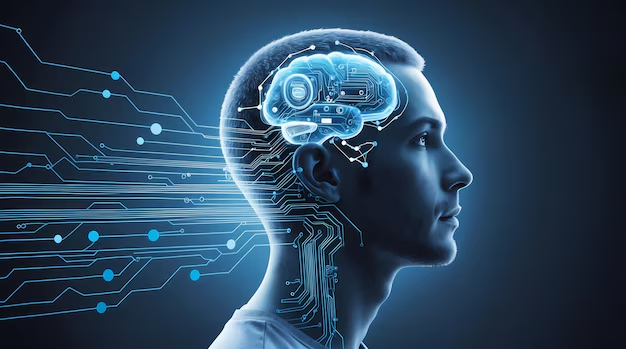Introduction to Artificial Intelligence at AIITECH IT Education
Artificial Intelligence (AI) isn’t just a futuristic concept; it has become an integral part of our daily lives. At AIITECH IT Education, we actively equip you with the knowledge and tools necessary to thrive in the rapidly evolving world of AI. Whether you’re eager to break into the field or looking to advance your existing skills, our programs are specifically designed to guide you every step of the way.
As you embark on this journey, you’ll discover how AI transforms various industries and enhances everyday experiences. With our hands-on training and expert-led courses, you will gain practical skills and insights that prepare you for real-world challenges. Join us at AIITECH, and let’s explore the exciting realm of Artificial Intelligence together!
What is Artificial Intelligence?
In simple terms, artificial intelligence refers to the ability of machines and software to mimic human intelligence. Essentially, it involves creating algorithms and systems that can actively perform tasks such as learning from data, recognizing patterns, solving problems, and even understanding language. For instance, when you interact with voice assistants like Siri or receive personalized suggestions from Netflix, you’re experiencing AI in action. Clearly, Artificial intelligence has woven itself into nearly every aspect of modern life, enhancing convenience and efficiency in ways we often take for granted.
How AI is Shaping the Future
Artificial intelligence isn’t just a buzzword; it’s actively reshaping industries across the globe. Companies are leveraging Artificial intelligence to automate tasks, enhance customer experiences, and make more informed decisions. For example, healthcare providers now utilize AI to diagnose diseases more accurately, while businesses depend on it to forecast market trends and stay ahead of the competition. As AI continues to advance, its potential to transform the way we work, learn, and interact grows exponentially. Clearly, the future of AI holds limitless possibilities that can redefine our daily lives.
How AI Works: The Core Concepts
To truly grasp AI, you need to understand the key technologies that drive it. Let’s dive into the essential building blocks:
Machine Learning
Machine learning stands out as one of the primary methods through which Artificial intelligence systems learn from data. Instead of requiring explicit programming for every task, these systems actively “learn” by analyzing patterns in data and making predictions based on that information. This approach enables them to adapt and improve over time, making machine learning a cornerstone of modern AI development.
Neural Networks
Next, we have neural networks, which consist of algorithms modeled after the human brain. These networks play a crucial role in helping AI systems recognize patterns and interpret complex data. For example, they excel in tasks such as image recognition and language translation, effectively making sense of information in ways that mimic human cognition.
Natural Language Processing (NLP)
Natural Language Processing (NLP) is another vital component, allowing machines to understand and interact with human language. This technology powers a range of applications, including chatbots, translation tools, and speech recognition software like Siri. By facilitating meaningful communication between humans and machines, NLP significantly enhances our interaction with technology.

Best AI Technologies Pioneering the Industry
Several key players are driving innovation in AI. Here’s a quick look at some of the most influential AI technologies:
Google AI
Google’s AI projects include everything from machine learning to robotics, and they’re paving the way in areas like autonomous vehicles and healthcare diagnostics.
OpenAI’s GPT Series
OpenAI’s GPT series, including the model you’re interacting with right now, has revolutionized natural language processing, enabling machines to understand and generate human-like text.
IBM Watson
IBM Watson is used in various industries for its powerful data analysis capabilities, from healthcare to business analytics.
AI Programs and Platforms: Key Tools to Know
If you’re interested in pursuing AI, there are several tools and platforms you’ll want to become familiar with:
AI Programming Languages
Python is the most popular language for AI development due to its simplicity and vast range of libraries. Other important languages include R, Java, and C++.
AI Development Tools
Tools like TensorFlow, Keras, and PyTorch make it easier to build, train, and deploy AI models.
AI Software Platforms
AI platforms like Google Cloud AI, Amazon AWS AI, and Microsoft Azure AI offer powerful tools for creating AI-powered applications.
The Role of AI in Business Innovation
AI isn’t just transforming industries; it’s driving innovation within them. Let’s look at how AI is reshaping businesses today:
Automating Processes
AI can automate repetitive tasks, allowing businesses to operate more efficiently. For example, AI-driven systems can manage customer service through chatbots, process large datasets, and even handle payroll.
Enhancing Customer Experiences
AI helps companies deliver more personalized customer experiences, from product recommendations to targeted marketing campaigns.
Driving Data-Driven Decision Making
AI can analyze vast amounts of data quickly and accurately, helping businesses make smarter, data-driven decisions.
AI Development: How Artificial Intelligence is Created
Building AI systems requires a combination of programming, data, and algorithms. Here’s how AI development typically works:
AI Training and Algorithms
AI models are trained using large datasets, allowing them to “learn” and improve over time. The algorithms that drive AI analyze this data, recognize patterns, and make decisions based on that information.
Data Collection and Processing
AI relies on massive amounts of data to function effectively. Developers must collect, process, and refine data to ensure the AI system can learn from it accurately.
Future of AI: Where the Technology is Headed
As AI continues to evolve, we can expect it to play an even larger role in our lives. From autonomous vehicles to AI-driven healthcare innovations, the future of AI holds immense potential to transform the way we live and work.
Conclusion
Artificial intelligence is transforming industries and shaping the future. At AIITECH IT Education, we’re committed to helping you gain the skills and knowledge you need to succeed in this exciting field. Whether you’re a beginner or a seasoned professional, our AI programs are designed to set you on the goal.